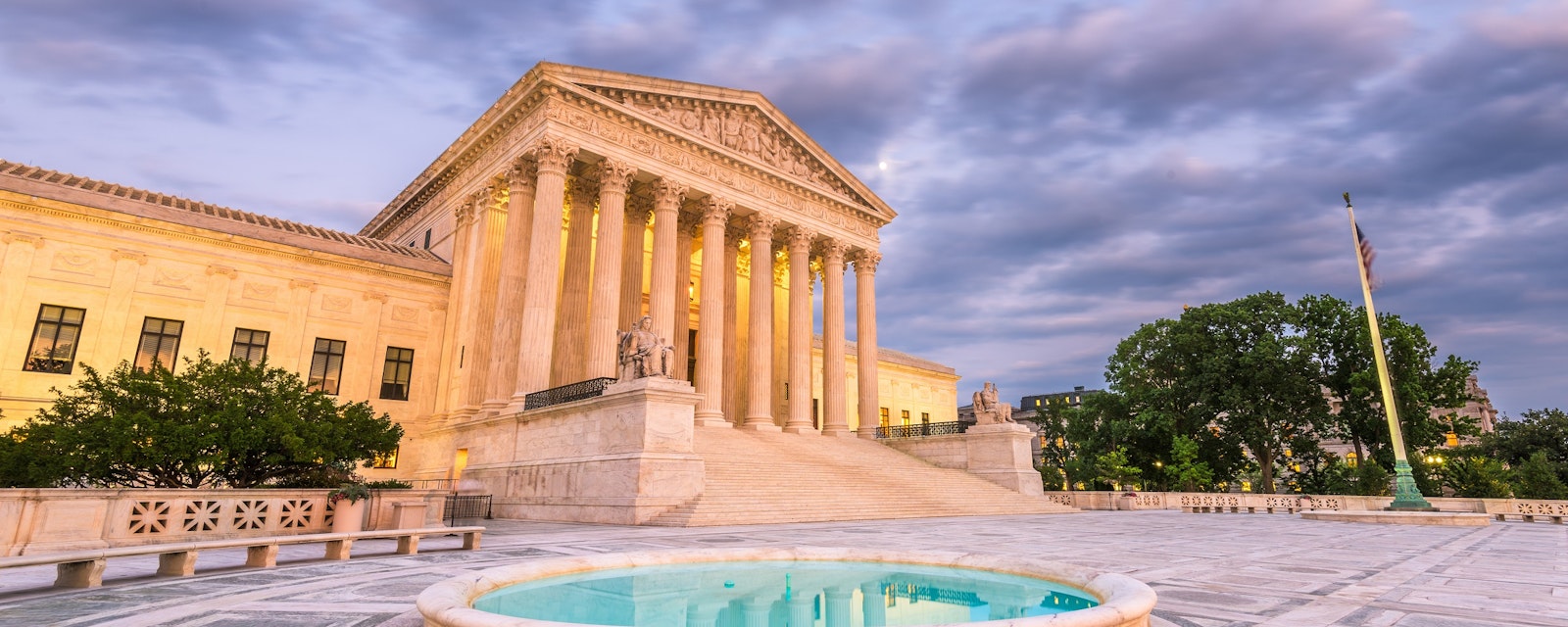On Thursday, January 13, the Supreme Court of the United States blocked the US Department of Labor’s Occupational Safety and Health Administration’s (OSHA) vaccine-or-testing Emergency Temporary Standard (ETS) for large employers, prompting concerns amongst businesses who were relying on the mandate in order to effectively implement firmwide vaccination requirements. The vote in the case was six to three, with liberal justices in dissent.
The Supreme Court has repeatedly upheld state vaccine mandates in various settings against constitutional challenges; however, the employer vaccine mandate case is different, as it presents the question of whether Congress has authorized the executive branch to institute the requirements. The Court’s order blocking enforcement of the mandate, while litigation occurs in lower courts, indicates that OSHA’s ETS may not ultimately be allowed to go into effect.
Legal Challenge's to OSHA's Vaccine-or-Testing Mandate
On Friday, January 7, the US Supreme Court heard oral arguments during a special session regarding the vaccine-or-testing ETS in the case of National Federation of Independent Business v. Department of Labor, in which the challengers requested that the Court issue a stay to stop OSHA’s mandate from taking effect as scheduled on January 10. The OSHA ETS, which was issued at the direction of the Biden administration and required that employers with 100 or more employees mandate staff to be fully vaccinated against COVID-19 or produce a negative COVID-19 test weekly, promptly faced legal challenges upon being published on November 5, 2021. Citing concerns that OSHA overreached and that the ETS was poorly tailored, the US Court of Appeals for the Fifth Circuit issued a stay against the implementation of the mandate. However, the US Court of Appeals for the Sixth Circuit lifted that stay, maintaining that a vaccine mandate could fall under OSHA’s emergency powers to protect employees from a “grave danger” in the workplace. The Supreme Court then undertook the responsibility to resolve the question on an emergency basis, resulting in the special session.
The Supreme Court faced the question of whether the implementation of OSHA’s vaccine-or-testing mandate should be paused until the case can be fully litigated in lower courts. The Supreme Court did not consider whether or not the mandate is lawful. However, during the hearing, the Justices asked questions regarding whether or not OSHA overreached when it issued the ETS. Essentially, all of the Justices asked the litigants questions regarding the “major questions doctrine,” which is a contested judicial rule for reading statutes that courts should not defer to an agency’s interpretation of a statutory provision in circumstances where the case involves an issue of deep economic or political significance or where the interpretive question could effectuate an enormous and transformative expansion of the agency’s regulatory authority. In this case, the Justices argued over the language of Congress’ Occupational Safety and Health Act which authorizes OSHA to protect employees from “grave danger from exposure” in the workplace. The Justices debated whether the language was broad enough to encompass OSHA requiring certain employers to implement a vaccine-or-testing requirement.
Ultimately, this is an argument over how much scope federal agencies have to act. The unsigned opinion issued by the Court says, “Although Congress has indisputably given OSHA the power to regulate occupational dangers, it has not given that agency the power to regulate public health more broadly. Requiring the vaccination of 84 million Americans, selected simply because they work for employers with more than 100 employees, certainly falls in the latter category.” How the Court applied the doctrine by blocking the mandate in this matter may have broader future implications beyond OSHA’s vaccine-or testing ETS.
Implications for Businesses
While the case is being fully litigated in lower courts, firms should continue to prepare for the potential enforcement of the employer vaccine mandate, should it be allowed to go into effect. The Supreme Court’s decision heightens uncertainty for companies and creates a patchwork environment, forcing firms to weigh their rationale for potentially implementing vaccine mandates. Teneo Senior Advisor and former Commissioner of the Division of Homeland Security and Emergency Services for the State of New York, Dr. Jerome Hauer, notes that “in the face of a public health emergency that has taken over 850,000 lives, businesses should use all of their resources to protect their employees and the general public. The only way to get through this pandemic is to vaccinate as many people as possible.”
To that end, firms planning to implement vaccination requirements for staff, regardless of the outcome of the federal OSHA case, should emphasize in all communications with staff that the rationale for doing so is in response to the existing public health conditions globally. These communications should avoid mentioning the Supreme Court’s ruling. Firms that were only planning to issue vaccination requirements to comply with the OSHA ETS should ensure that all communications with staff regarding vaccine mandates emphasize the ongoing ambiguity and enforcement of the OSHA ETS.
Firms continuing with their plans for implementing vaccination requirements should consider how they plan to enforce staff compliance and how to keep record of workers’ vaccination status. Additionally, businesses should reinforce existing health protocols per CDC guidance and continue to encourage vaccination and booster shots. Companies should promote vaccination guidance to employees and support the provision of vaccination and booster shots through paid sick leave.





